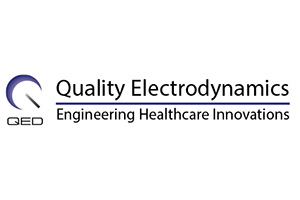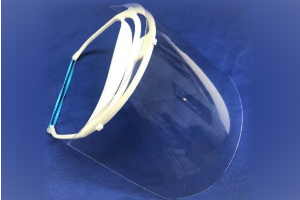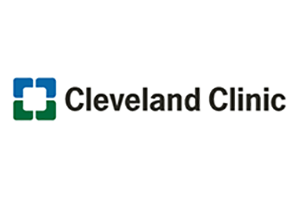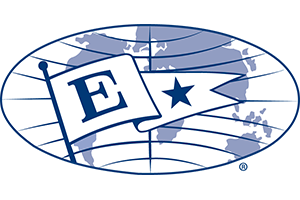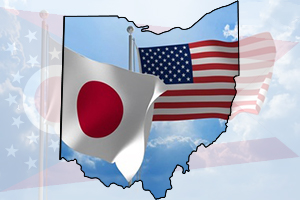QED PHS – Funded Research Conflict of Interest Policy
Public Health Service Conflict of Interest Training and Disclosure Requirements
This policy details how QED identifies and addresses potential Financial and Non-Financial Conflicts of Interest relating to research funded by the U.S. Department of Health and Human Services Public Health Service (PHS) agencies to ensure QED’s research is free from bias or the appearance of bias. It applies to all QED employees who participate in research funded by PHS agencies and/or who hold certain management positions.
Contents
1. Definitions
- Employee means all Regular and Term Employees and Interns.
- Conflicts of Interest (COI)
- Financial Conflict of Interest (FCOI) means a Significant Financial Interest that could directly and significantly affect the design, conduct, or reporting of PHS-funded research where a financial interest is anything of monetary value, whether or not the value is readily ascertainable.
- “Non-Financial Conflict of Interest” (“NFCOI”) means interest other than a Financial Interest that could directly and significantly affect, or could directly and significantly be affected by, the design, conduct, or reporting of a Research Activity, including without limitation PHS-funded Research.
- “Significant Conflict of Interest” (“SCOI”) means either an FCOI or NFCOI or combination of an FCOI and a NFCOI.
- External Entities means non-QED organization or entity (including both publicly traded and private companies) either publicly-traded or private, that could be materially affected by the conduct or results of the PHS-funded Research.
- QED Professional Responsibilities means a QED employee’s professional responsibilities relating to seeking (by submission of proposals for the award of contracts or grants) or conducting PHS-funded Research, including but not limited to: research; peer review; editing, publication, and dissemination of research; performing service in conjunction with QED’s IRB governing Human Volunteer Research; and relevant work performed in administrative or support functions including the Office of the Chief Financial Officer,
- Investigator means the QED Principal Investigator (PI) and any other QED personnel, regardless of title or position, who is responsible for the design, conduct, or reporting of research funded by PHS, or proposed for such funding, which may include, for example, collaborators or consultants.
- PHS means the Public Health Service of the United States Department of Health and Human Services, and any components of the PHS to which the authority involved may be delegated, including the National Institutes of Health (NIH) and the Food and Drug Administration (FDA)
- “PHS Compliant Research” means any Research Activity funded in whole or in part by an Entity specifically requiring compliance with 42 CFR 50, subpart F (Promoting Objectivity in Research) or 45 CFR 94 (Responsible Prospective Contractors) as a condition of providing funds for such Research Activity, including without limitation Research Activity funded by the PHS.
- Research means a systematic investigation, study, or experiment designed to develop or contribute to the generalizable knowledge relating broadly to public health, including behavioral and social-sciences research. The term encompasses basic and applied research (e.g., a published article, book, or book chapter) and product development (e.g., a diagnostic test or drug). The term includes any such activity for which research funding is available from PHS.
- Conflict of Interest Committee (COIC) means a panel of three (3) QED employees one of whom is designated at the Chairperson. The Chairperson and other committee members are appointed by the QED’s CEO.
2. Overview and Responsibilities
-
The United States Department of Health and Human Services has issued regulations pertaining to conflicts of interest. The regulations require that all individuals who participate in the design, conduct, or reporting of research funded by the Public Health Service (PHS) agencies complete training on conflicts and disclose personal interests that could give rise to an actual conflict of interest or the appearance of a conflict. See the full text of the regulations and the final rule implementing the regulations published in the Federal Register for more information.
As detailed in this document, all QED Investigators and members of the COIC board, and employees directly involved in the reporting of Research results will be required to complete training, submit a conflict of interest screening form, and disclose relevant Interests if they worked on a PHS-funded project in the preceding year, if they expect to work on a PHS -funded project in the upcoming year, or at any time they are named in a proposal for a PHS-funded project. Key members of management and certain administrative and support department staff also will be required to complete the training and the screening form and provide relevant disclosures, if they are responsible for the design, conduct, or reporting of research funded by the PHS. In the event that QED employees are involved with PHS funding proposals or funding prior to the enactment of this policy, those employees will be required to complete screening forms and disclose relevant Interests within 30 days of the enactment date of this policy.
The requirements of this Policy should be read in conjunction with QED’s Ethics and Conflict of Interest Policy as presented in their employee handbooks. Nothing in this policy is to be construed as negating in any way any aspect of the employee handbook requirements.
- Responsibilities
-
- Investigators are responsible for completing all required training, disclosing all potentially conflicting Interests relating to PHS Research, and for assisting with the management of any identified SCOI as well as complying with the mitigating actions determined by the COIC.
- The Chairperson of the COIC is responsible for reviewing all disclosed Interests to identify any disclosure to determine if they may represent an SCOI and presenting them to the COIC in a timely fashion. The COIC shall provide guidance to the Investigator and to QED management with respect to disclosures which may constitute an SCOI. Upon identification of potential SCOI related to a project funded by PHS, the Chairperson of the COIC will work with the Investigator and the relevant research unit or corporate manager to manage the SCOI (Section 5.2 below).
In the event that the employee with a potential SCOI is a member of the COIC, that member shall recluse themselves from COIC decisions on the potential SCOI and any corrective actions.
In the event that the employee, with potential SCOI, is the Chairperson of the COIC, then the Chairperson will recluse themselves and the more senior remaining COIC member shall take over the responsibilities of the Chairperson in regard to evaluation and resolution of the SCOI. - The QED PI for the project is responsible for taking reasonable steps to ensure that subcontractors comply with the Department of Health and Human Services Conflict of Interest regulations.
- All QED employees will comply with regulatory requirements relating to our Institutional Responsibilities, including certification of compliance, maintenance of records, responses to requests for information, and reporting requirements.
3. Reporting and Training Requirements
- Requirements
As detailed in Section 3.2 below, all QED Investigators must:- Disclose all potential SCOI’s on screening form to the COIC
- Complete the related conflict of interest training program at least every four years (Section 3.4 below).
- Comply with management plan for mitigating potential or identified SCOIs Failure to accurately and timely complete the training and the disclosure, to provide updates as required by this policy or non-compliance to the management plan for mitigating potential SCOIs could result in disciplinary action, up to and including termination.
- Screening & Disclosure Form
The QED conflict of interest screening and disclosure form is available on QED’s internal website. All Investigators must fully and accurately complete the disclosure and submit it to the COIC within the time allotted depending on the circumstances giving rise to the need for disclosure. Disclosures of such Interests must provide sufficient detail as to permit an accurate and objective evaluation as to whether the Interest would reasonably impact the Investigator’s actions or decisions in connection with the Research Activities.- Proposals & Projects. Investigators named in a proposal for a project funded by PHS must complete the training and the online disclosure before the proposal is submitted. Investigators who were not named in a proposal and who participate in the design, conduct, or reporting of PHS-funded work must complete the training and the disclosure before beginning any work on a project funded by PHS. Any employee who was involved in proposals with potential PHS-funding prior to the issuance of this policy must submit the disclosure form within 10 business days of this policy’s implementation date.
- Continuing Obligation to Update. All Investigators must update and certify the disclosure form at least annually and within 30 days of receiving, acquiring, or discovering either a new potentially conflicting Interest or additional interests from an External Entity previously disclosed by the Investigator. For example, changes in an Interest could include (but are not limited to) purchase or inheritance of stock or a change in a spouse/domestic partner’s employment. All employees covered by the PHS regulations are expected to recognize their continuing obligation to timely disclose relevant Interests to ensure QED’s compliance with the reporting and certification requirements of the PHS regulations.
- Disclosure Thresholds
Because of the variability among the regulatory schemes that could potentially apply to QED, and because of the potential for enactment of changes in the disclosure thresholds, QED has not set a minimum threshold for disclosure. This eliminates the need for staff to resubmit disclosures if thresholds are changed and reduces the potential for confusion about the threshold that applies in a particular situation. Investigators therefore are required to disclose the Interests listed in Section 4.2 below, regardless of the value of such Interests. - PHS Conflict of Interest Training
As part of completion of the disclosure, Investigators are required to certify, at least every four years, completion of all training required by the Investigator’s work on PHS-funded projects. QED currently utilizes the On-line: Collaborative Institutional Training Initiative (CITI) Conflict of Interest Mini-Course, which consists of two on line training modules. Once these modules have been completed, subsequent 4 yr. refresh requirements can be met utilizing the CITI COI refresher module.
4. Identifying Significant Interests
- Significant Interests
The COIC will review all disclosed Interests and identify any Significant Interests. Generally, a significant Interest is an Interest that is likely to have a material effect on the Research. In the context of PHS research, Significant Interest means an Interest of an Investigator (including the Investigator’s spouse or domestic partner, dependent child, or other member of the Investigator’s household) in any PHS-funded research related project of a Related External Entity consisting of one or more of the interests identified in Section 4.2 below (Relevant Interests) if:- the Interest reasonably appears to be related to the Investigator’s Corporate responsibilities at QED, and
- the aggregate value of all interests held in a particular-Related Entity exceeds $5,000.
- Relevant Interests
The following Interests may potentially qualify as Significant interests:- Remuneration (including salary, wages, consulting fees, honoraria, and any other fee for services)
- Defined benefit pension payments or other post-employment payments
- Service in a management position such as a board member, director, officer, partner, or trustee of a Healthcare-Related External Entity
- Ownership of an equity interest (including stock, stock options, bonds, or any other ownership interest)
- Holdings in a healthcare sector-oriented mutual fund
- Intellectual property rights (e.g., patents or copyrights) from which income is received
- Gifts of more than nominal value (more than $20) from clients, vendors, or Healthcare-Related External Entity.
- Reimbursed or sponsored travel related to an Investigator’s QED Professional Responsibilities
- Sponsored travel means travel expenses paid on behalf of an Investigator (or relevant family member) rather than paid by reimbursement
- Travel reimbursed or sponsored by the following is excluded: federal, state, or local government agencies; institutions of higher education; academic teaching hospitals; medical centers; and research institutes affiliated with institutions of higher education.
- Investigators will be required to provide the following information with respect to any reimbursed or sponsored travel: name of External Entity that sponsored or reimbursed any expenses associated with the trip; purpose of the trip; destination; date and duration of the trip; and amount of reimbursement received.
- Excluded l Interests
The following Interests do not give rise to Significant Interests and therefore need not be disclosed:- Salary, wages, and remuneration paid by QED
- Travel expenses paid or reimbursed by QED
- Income from mutual funds and retirement accounts (other than healthcare sector-oriented funds, see Section 4.2(e) above), as long as the Investigator does not directly control the investment decisions made by the funds
- Income from seminars, lectures, or teaching engagements sponsored by a federal, state, or local government agency; an institution of higher education; an academic teaching hospital; a medical center; or a research institute that is affiliated with an institution of higher education
- Service on advisory committees or review panels for a federal, state, or local government agency; an institution of higher education; an academic teaching hospital; a medical center; or a research institute that is affiliated with an institution of higher education
5. Review and Evaluation of Disclosed Interests
- Identifying SCOI
A disclosure of an Interest does not, by itself, create an impermissible conflict of interest. Each Interest disclosure will be reviewed by the COIC. The COIC is responsible for determining when an actual or potential conflict of interest exists in a given situation – that is, when a Interest could directly and significantly affect the design, conduct, or reporting of PHS-funded research and for taking action as necessary to address and manage such conflicts of interest, including development and implementation of a management plan (see Section 5.2 below). This responsibility will be exercised in cooperation with the relevant PI and/or corporate manager and with full support by the Investigator. A variety of criteria may be considered in determining whether a particular Interest creates a conflict of interest with respect to a particular project funded by PHS or CMS. - Managing SCOI
QED will take appropriate steps to address and manage SCOI to ensure that the design, conduct, and reporting of QED’s research is free from bias or the appearance of bias. As described in the PHS regulations, some examples of how conflicts of interest may be addressed and managed include:- Public disclosure of an Investigator’s SCOI; disclosures will only occur after notice to and consultation with the Investigator
- Disclosure of SCOI directly to participants in Research projects involving human subjects
- Monitoring of Research projects by reviewers who do not have SCOI and who are capable of implementing measures to protect the design, conduct, or reporting of the Research against bias arising from identified SCOI
- Modification of the research plan, including, for example, change of personnel or personnel responsibilities with respect to particular tasks
- Disqualification of personnel from participation in all or a portion of a Research project funded by PHS
- Reduction or elimination of a SCOI (e.g., sale of stock)
- Severance of relationships (e.g., consulting activities) that create actual or potential conflicts.
The Chairperson of the COIC will report the occurrence and course of remediation for any SCOI to the Prime funding recipient (in the event of a QED subaward) or to the relevant PHS Awarding Component through the FOIC module of the ERA Commons web portal (in the event that QED is the Prime funding recipient) as well as by direct written notification when and as required by law.
In addition, with respect to FCOIs relating to PHS Compliant Research, QED will disclose such FCOIs to members of the public who request such disclosure as required by applicable law. The Chairperson of the COIC will notify the Investigator of any such request and the proposed response to such request and afford the Investigator an opportunity to comment on such request within a time period that will allow a timely response (i.e., within five (5) business days of the request) to be issued; however, QED will have the final authority regarding the content of such response.
If it is found that a Financial Conflict of Interest or a Non-Financial Conflict of Interest was not identified or managed in a timely manner, QED shall file such reports and take such actions as required by applicable law or as it otherwise deems necessary or appropriate in the circumstances.
The COIC Chairperson is responsible for the posting of this policy on a publicly accessible website and assurance of reporting under this section.


